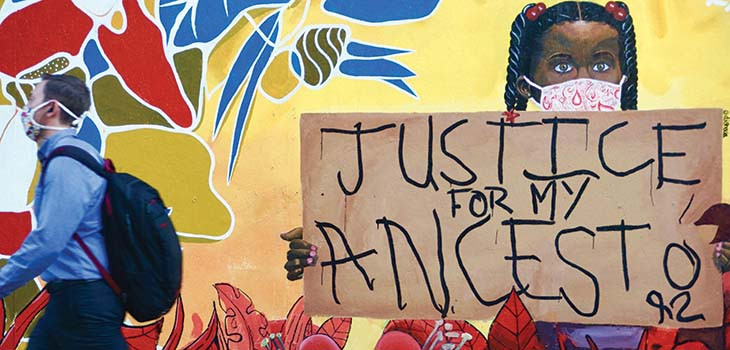
- Examines whether states could have a claim in public international law against states complicit in the transatlantic slave trade.
- Covers some historical context, including written works of Olaudah Equiano from 1789, and international treaties.
- Refers to the Island of Palmas case.
In 2013, the Caribbean Community set up the CARICOM Reparations Commission to ‘prepare the case [for] reparatory justice for the Caribbean region’s indigenous and African descendant communities who are the victims of Crimes Against Humanity in the form of genocide, slavery, slave trading and racial apartheid’. A decade on, the issue is rarely far from the headlines.
CARICOM’s proposal encompasses a variety of approaches. This article focuses on the issue of law: do states have a tenable claim in public international law against states complicit in the transatlantic slave trade? (See generally Buser, Colonial Injustices and the Law of State Responsibility, KFG Working Paper Series, No 4, August 2016.)











